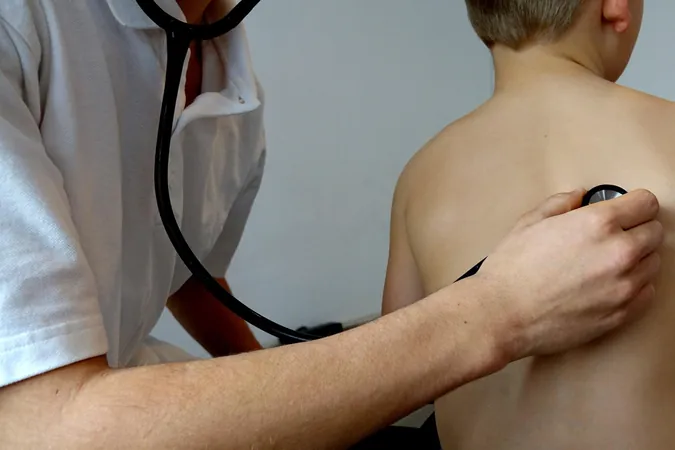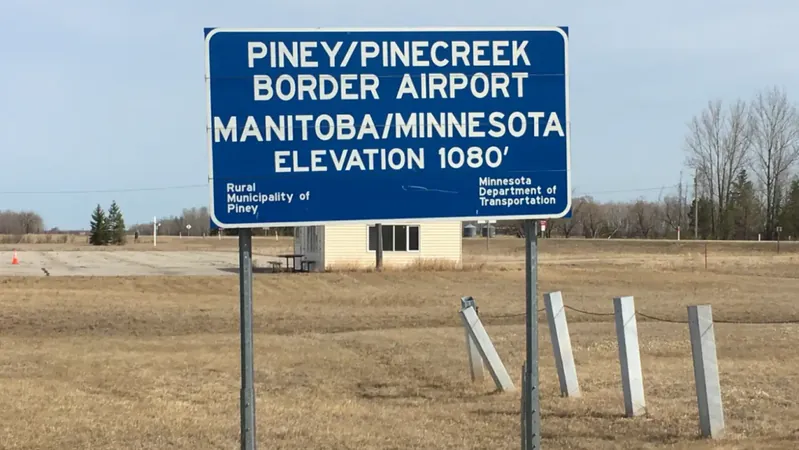
The Alarming Rise of 'Walking Pneumonia' in Washington: What You Need to Know!
2024-12-24
Author: William
Introduction
In a startling development this year, health experts in Washington are sounding the alarm over a notable uptick in cases of walking pneumonia, a lesser-known but increasingly prevalent respiratory infection caused by the bacteria Mycoplasma pneumoniae. As the fall season brings a barrage of familiar respiratory viruses such as influenza, RSV, and SARS-CoV-2, the surge of Mycoplasma pneumonia has raised concerns, particularly among pediatric populations.
Current Situation
The Centers for Disease Control and Prevention (CDC) has reported a consistent rise in Mycoplasma pneumonia cases since spring, with a notable peak in late August that has not subsided. In King County, healthcare providers are witnessing a significant increase in emergency department visits related to this diagnosis. 'We’ve seen a dramatic rise in both illness and hospital admissions due to Mycoplasma pneumonia,' stated Dr. Mary Fairchok, a pediatric infectious diseases specialist at Mary Bridge Children's Hospital in Tacoma. She pointed out that while adults are also affected, the pediatric population is currently bearing the brunt of this outbreak.
Severity and Statistics
Just how severe is the situation? At Seattle Children's Hospital, cases have surged from just a handful each week earlier this year to between 13 and 26 cases weekly over recent months. This skyrocketing incidence rate echoes a trend being seen across the US, leading many providers to remark that we are nearing pre-pandemic levels of respiratory infections.
Pediatric Impact
Health officials have noticed that children, particularly those aged 5 to 17, have experienced the highest percentage of emergency department visits linked to Mycoplasma pneumonia. Despite M. pneumonia not being a specifically tracked condition by the Washington State Department of Health, anecdotal evidence suggests a rise in diagnoses across the state as healthcare providers report an increase in symptoms typically associated with this infection.
Symptoms and Complications
Walking pneumonia often masquerades as a mild illness akin to the common cold, allowing many to recover at home without requiring hospitalization. However, cases can escalate into more debilitating health issues. Patients reported not only traditional pneumonia symptoms like coughing and fever but also severe complications, including brain inflammation and extra-pulmonary manifestations affecting the skin and gastrointestinal systems. Dr. Fairchok highlighted troubling trends, noting an increase of young patients requiring intensive care—an alarming signal for health professionals.
Possible Causes
The exact reasoning behind this resurgence of pneumonia cases remains elusive. Although many theories are circulating, one possibility is that the strict public health measures during the pandemic, which minimized the spread of various infections, have led to an incomplete population-level immunity. Now, as normal respiratory interaction returns, pathogens like Mycoplasma pneumoniae are resurging.
Broader Respiratory Virus Activity
In addition to pneumonia, Washington is also experiencing a broader spike in respiratory virus activity. Reports indicate that while cases of RSV and influenza were relatively low earlier in the season, emergency visits due to both ailments have recently surged, prompting healthcare facilities to re-evaluate their infection control measures. Public Health—Seattle & King County confirmed this week that RSV-related visits in emergency departments have quadrupled over a short span, with flu cases rising sharply as well.
Prevention Measures
The CDC and local health officials remind the public that preventative measures are still crucial. Simple practices such as handwashing, mask-wearing, and avoiding close contact with infected individuals can significantly diminish risk during this respiratory virus season.
Pertussis Update
Finally, amidst rising infections, another disease that has caught the attention of health officials is pertussis, or whooping cough, with roughly 1,800 cases reported as of early December—an alarming rise compared to the same time last year. Though vaccination efforts can help mitigate this risk, the ongoing surge in multiple respiratory infections serves as a stark reminder for communities to remain vigilant.
Conclusion
Stay informed, protect yourselves, and prioritize health as we navigate this respiratory season!









 Brasil (PT)
Brasil (PT)
 Canada (EN)
Canada (EN)
 Chile (ES)
Chile (ES)
 España (ES)
España (ES)
 France (FR)
France (FR)
 Hong Kong (EN)
Hong Kong (EN)
 Italia (IT)
Italia (IT)
 日本 (JA)
日本 (JA)
 Magyarország (HU)
Magyarország (HU)
 Norge (NO)
Norge (NO)
 Polska (PL)
Polska (PL)
 Schweiz (DE)
Schweiz (DE)
 Singapore (EN)
Singapore (EN)
 Sverige (SV)
Sverige (SV)
 Suomi (FI)
Suomi (FI)
 Türkiye (TR)
Türkiye (TR)